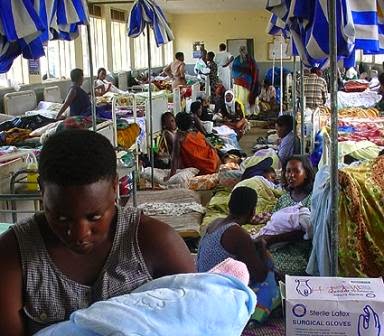The principal objective behind development pact is to ensure transparency, accountability, public participation, standard of services and community inclusion in Health reforms and policy changes. Pact signing involved different stakeholder like district health officers, health workers, sub county chiefs, community volunteers (Voluntary accountability committee), Village health teams, health management committees, health workers, HIV/AIDS focal person and local leaders who pledged their commitments and team building towards improving health service delivery.
The development pact therefore mainly empowers existing structures and the entire communities to work together in improving service delivery; in this way they take ownership of project intervention and results.
In December 2012 development pacts were signed in health centers of Lira (Amach HC iv, Ogur HC iv) and in Oyam (Anyeke HC iv, Agulurude HC iii, Loro HC ii and Iceme HC ii) which has already began to register key success by evident engagement of health management committees in Oyam and Lira (Northern Uganda) districts increasingly monitoring their respective health centers; case in point is Amach health center IV where one of the health workers who was scheduled to be on duty was found sitting at her home nearby the health center yet there were many patients waiting to be served and her support was highly being missed, when the health management committee chairperson visited the facility and realized what was happening.
He informed the area LC 3 chairman who acted by reporting the health worker to police who later arrested the said health worker only to be later released on police bond. We need leaders who can take up actions when they identify corruption taking place like it was with the health management committee chairperson who took up actions; the health worker was later on tasked to report on duty and resume work at the health center.
To health workers across the country they may look at this as hash treatment of health workers neglecting the fact that they are to be socially accountable to the people they serve Transparency International Uganda has empowered the communities through ICT to monitor their respective health centers and ensure that health workers are socially accountable whether with or without the physical presence of civil society organizational interventions.
